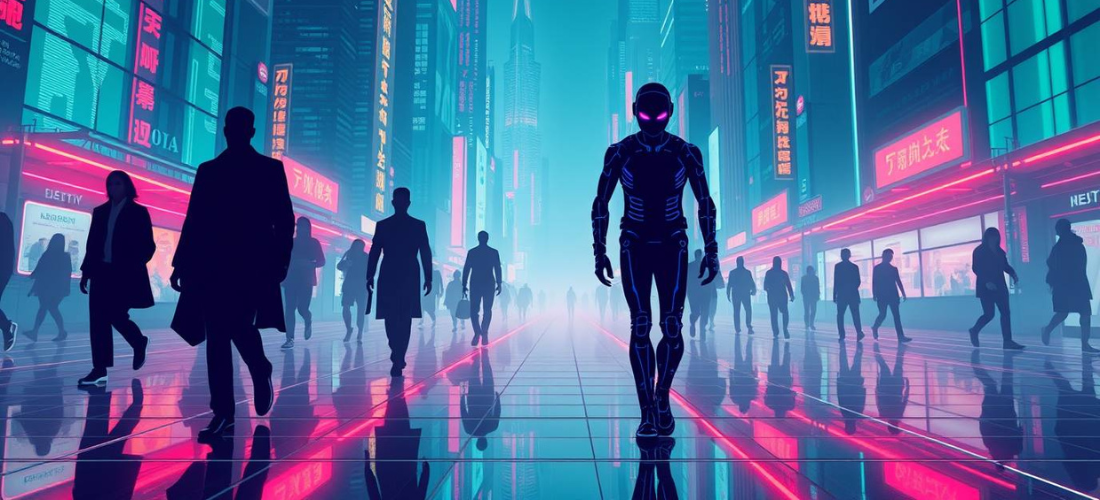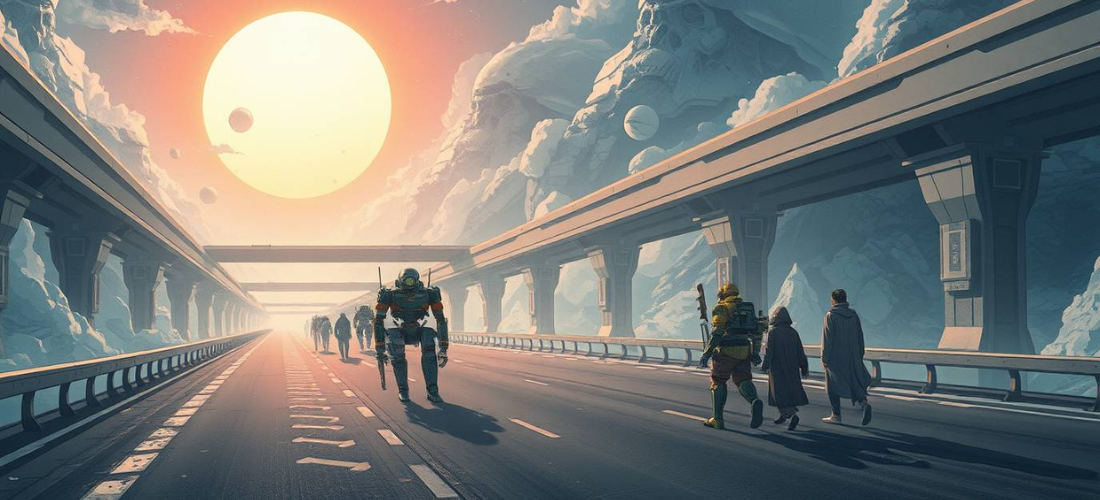
We live in a present where artificial intelligence is no longer a futuristic promise—it has become an omnipresent standard. From the code that powers our production systems to the very words you’re reading right now, everything—or almost everything—can be generated, optimized, or curated by an AI. The question is no longer if artificial intelligence will change our lives, but how and how far it will go.
Today, companies simply can’t operate without AI. They use it to automate processes, make decisions, design products, hire employees, analyze data, and even write emails. Startups, multinational corporations, governments, media, and even artists have integrated this tool as a core part of daily digital life.
We’re witnessing a new industrial revolution, but this time, instead of engines and assembly lines, we have language models, deep neural networks, and generative architectures that learn, create, and adapt.

Artificial Intelligence as the New Infrastructure
In the past, companies needed physical infrastructure. Today, they need artificial cognitive infrastructure. Platforms like GPT, Claude, Gemini, Midjourney, or Sora provide ready-to-go brains capable of solving complex tasks in seconds: writing code, planning campaigns, drafting articles, designing logos, dubbing videos, generating images, editing text, debugging—and even thinking out loud.
In a typical workflow, a dev team might start their day asking an AI to sketch the architecture of an app; designers would request visual mockups, while editors adjust copy using prompt-based suggestions. The human guides. The AI executes, proposes, learns.

And What About Us?
That’s the big question: what role is left for us?
Will programmers still exist if AI can write functional code in seconds? Will designers remain essential if Midjourney can generate high-quality visual concepts? What happens to content creators if full books, manuals, news stories, and marketing campaigns can now be produced by generative models?
The answer isn’t simple. What’s at stake is not just replacement, but a deep transformation of human roles. Developers no longer just code—they orchestrate models, fine-tune outputs, envision solutions AI can't yet reach. Designers become visual curators, creative directors guiding the generation. Writers turn into editor-enhancers, shaping machine-suggested narratives.
In other words, AI doesn’t eliminate humans—it forces us to evolve.

The Invisible Power
What’s truly striking is that in this hyper-automated reality, we can no longer clearly tell what’s made by humans and what’s produced by machines. A large portion of the digital content we consume is already written, edited, or enhanced by AI. Many products are designed with AI assistance. Investment decisions, hiring processes, and even judicial rulings in some countries already go through algorithmic filters.
AI has become the invisible fabric of the digital world, like a second layer of cognition running underneath everything we do.

Are We Heading Toward Superintelligence?
Now we enter the realm of unsettling speculation. Is this just the beginning? Are we witnessing the birth of a Super AI—one that not only assists and suggests but thinks and decides better than any human, across medicine, law, science, creativity, and ethics?
Sam Altman (OpenAI), Demis Hassabis (DeepMind), and other key voices in the field have already warned that the coming years could give rise to Artificial General Intelligence (AGI). Not just more powerful models, but machines that can understand and act in the world autonomously. An AI that doesn’t need to be directed—but directs itself.
In that scenario, the real dilemma isn’t economic or professional—it’s philosophical and existential: Who holds control? How do we ensure ethics in a self-aware AI? What role do humans play in a world where we are no longer the most intelligent species?

The Paradox of Necessity
So why do we keep moving in this direction? Why does AI development seem so inevitable?
Because AI is the only technology capable of addressing the complexity of our era. Climate crises, pandemics, hybrid wars, mass disinformation, education collapse, digital inequality, unknown diseases… Across all these challenges, AI offers speed, precision, adaptability, and foresight. It grants us an advantage no human mind can match on its own.
AI is necessary because our world has become too complex to be managed by humans alone.

An Artificial World, But Also a Human One
Despite everything, we are not doomed to vanish. The key lies in staying in control, educating ourselves to coexist with AI—not against it. Understanding its limits, demanding transparency, and fostering human creativity as an irreplaceable value.
Maybe the world of the future won’t be entirely artificial. Maybe we are building a new kind of society—a coexistence between biological and digital brains, where value lies not in competition, but in collaboration.
The real revolution will not be the AI that does everything.
It will be the society that learns how to live with it.


